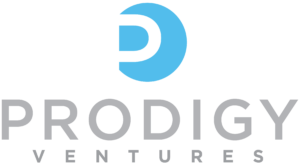Demystifying Industry Standards
One of the DIACC’s mandates is to identify and develop industry standards around digital identity that prioritize Canadian values through frameworks that are easy to reproduce, export, and apply across a large variety of industries and use cases.
In this post, we explore what the DIACC means by industry standards, why they matter to every Canadian, and how our collaborative approach is designed to unlock strategic insights that drive the delivery of robust and impactful standards.
What is an Industry Standard?
Industry standards are understood as a set of criteria relating to the standard functioning and executing of operations in a respective field of production. Industry standards establish a generally accepted framework to be adopted and followed by members of any given industry.
“Industry” refers to the field of practice – not the sector. In any given industry people and organisations intersect with each other and share interdependencies. This is especially true when it comes to the digital world.
Examples of Industry Standards:
- Wifi Standards set by IEEE
- Authentication Standards set by FIDO Alliance
- Interoperability Standards set by Bluetooth Working Groups
- Canadian Motor Vehicle Safety Standards set by Transport Canada
DIACC members work to identify and develop multi-sector and community-driven industry standards for digital identity practitioners that offer broad value to all Canadians, from the private and public sector and around the world. In order to deliver value, industry standards must prioritize flexibility and security to ensure continued effectiveness.
Why do they Matter?
Industry standards establish a framework to ensure a repeatable level of expectation and certainty that benefits everyone involved. This is especially important in the digital world, when it comes to a concept as impactful and wide-reaching as digital identity.![]()
Industry standards allow widespread technology and services adoption, improve user experience through interoperability, and ensure that safety and security are entrenched in solutions by design.
Industry standards for digital identity help:
- Build customer confidence over time through consistent user experiences
- Remove risk from a hardware perspective, as standards establish what needs to go into each element of a product, from design to delivery
- Ensure interoperability
- Improve the customer experience and provide more strategic insight into consumer needs
- Businesses and government understand what’s needed to ensure user confidence and interoperability of products
- Establish design standards to ensure privacy and security of data
- Develop a competitive edge through security, predictability, and confidence, resulting in a larger user base
Design standards to maintain the security and privacy of personal identifiable information have a critical role in building public confidence for adoption of identity innovations. Digital identity industry standards are evolving, yet an inconsistent user experience remains, resulting in less confidence and slower progress.
Through industry standards development, there is an exciting opportunity for leaders of innovating organisations to collaborate and shape our digital lives. Collaboration across sectors and verticals provides key learnings, opportunities for new partnerships, business growth and development, and strategic insights that can’t be gained in isolation.
DIACC’s vision for digital identity is to make Canadians’ lives better. The time, energy, and effort it takes to remove complexity from users is not something Canadians should have to think about. If implemented properly, digital identity will be a simple, trusted and reliable part of how Canadians interact and conduct transactions everyday.
After all, the hard work of good design is often invisible. Consider something as simple as this lamp:

Industry Standards Development: Why DIACC Uses a Call for Comments
The DIACC’s goal is to unlock public and private sector capabilities through impactful cross-industry collaboration to make the complex systems that underpin digital identity simple, secure, and more trustworthy for both users and suppliers. One way we will accomplish this vision is through far-reaching and useful frameworks.
Digital identity that delivers impact to grow an economy requires broad collaboration and ultimately, success will be led by inclusion. The DIACC coalition of public and private sector leaders are making a sustained and significant investment in the future of digital identity. By connecting committed stakeholders and the broader Canadian community at-large around focused, inclusive, and beneficial standards, we ensure every Canadian has the opportunity to share their view.
Contact us to to share your ideas for collaborative and Canadian principled standards that can advance Canada’s digital economy.
